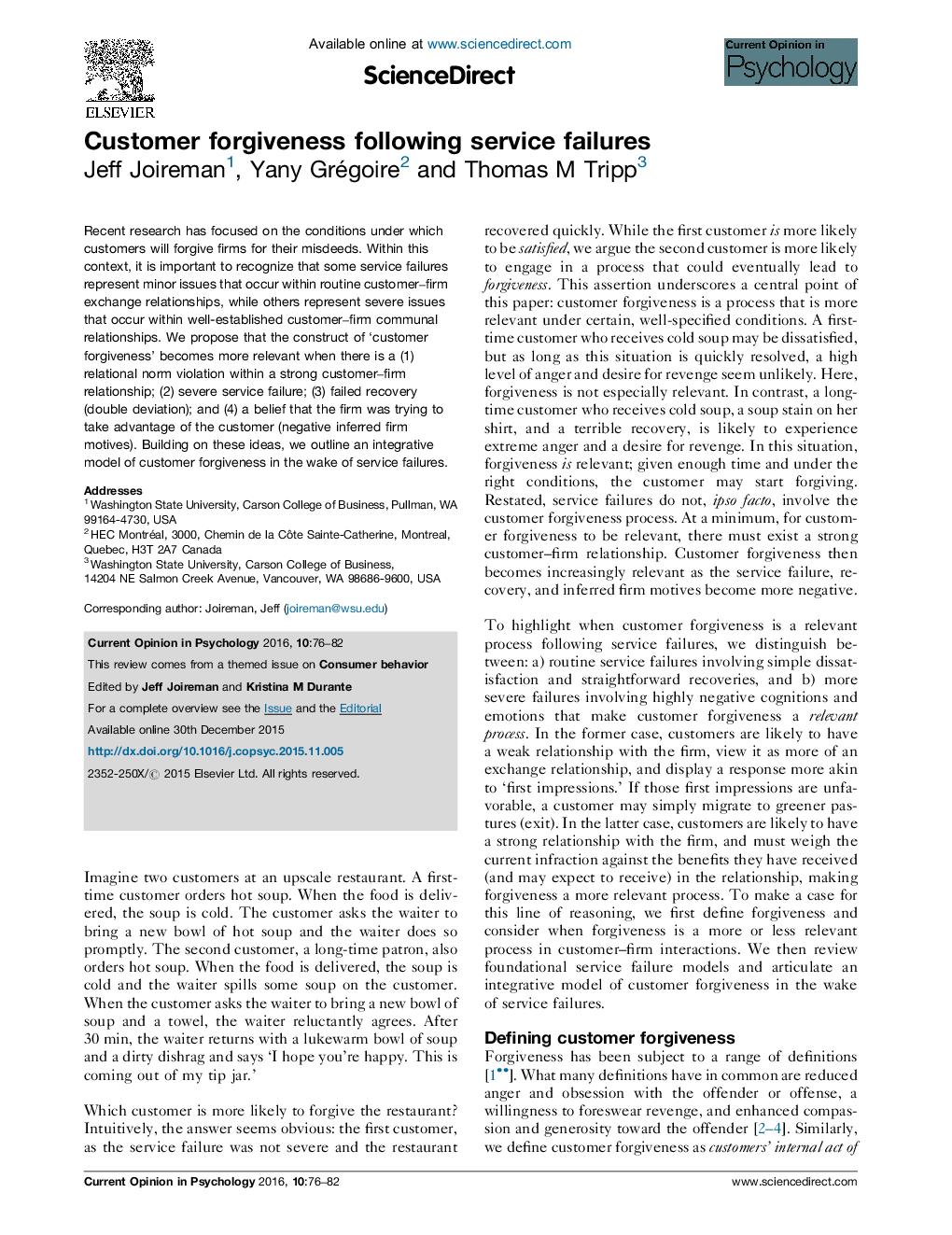| Article ID | Journal | Published Year | Pages | File Type |
|---|---|---|---|---|
| 879277 | Current Opinion in Psychology | 2016 | 7 Pages |
•Recent research has aimed to understand customer forgiveness (CF) following service failures.•Routine and less severe failures in exchange relationships are unlikely to involve the CF process.•CF is most relevant after severe, failed recoveries within communal customer–firm relationships.•CF is less likely when customers infer firms have negative motives underlying failed recoveries.
Recent research has focused on the conditions under which customers will forgive firms for their misdeeds. Within this context, it is important to recognize that some service failures represent minor issues that occur within routine customer–firm exchange relationships, while others represent severe issues that occur within well-established customer–firm communal relationships. We propose that the construct of ‘customer forgiveness’ becomes more relevant when there is a (1) relational norm violation within a strong customer–firm relationship; (2) severe service failure; (3) failed recovery (double deviation); and (4) a belief that the firm was trying to take advantage of the customer (negative inferred firm motives). Building on these ideas, we outline an integrative model of customer forgiveness in the wake of service failures.
